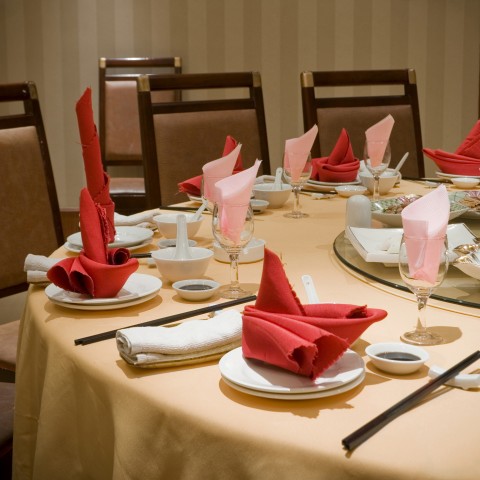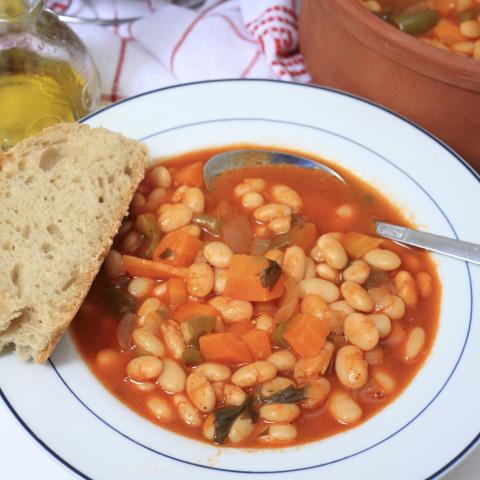
I’ve always found that naming whatever I can see is a huge motivation boost.
First, it’s easy. If I learn the word for something I see or use all the time, it sticks really easily in my mind because I always see it.
Second, it feels very cool when I can use a foreign language to list and describe anything at all in my immediate environment.
In order to get to that level, you don’t have to do a lot of work. You just need to be familiar with your Arabic nouns. Hence, you should find our list of common Arabic nouns and grammar explanations very helpful.

Table of Contents
1. A Few Quick Notes on Arabic Nouns

When it comes to nouns in Arabic, grammar knowledge—even just a little bit—is essential.
Before you try to learn Arabic nouns, keep in mind that nouns in Arabic have grammatical gender. Any given noun is either masculine or feminine, though it’s usually easy to tell because the two noun genders have different endings. Some feminine nouns don’t have feminine endings, but if that’s the case, we’ll point it out in this Arabic nouns list as they come up.
Whereas English has only singular and plural noun forms, Arabic has a dual form as well, used to indicate that there are exactly two things.
There are other rules for Arabic nouns, but for this article we’ll just get you recognizing the most common Arabic nouns. The best way is to learn them in the context of sentences, and that’s exactly what we have! With ArabicPod101.com, understanding Arabic nouns has never been simpler!
2. List of Basic Arabic Nouns by Category

1- Time
It all begins and ends with time. These words are absolutely necessary for everyday chitchat, because everyone wants to know about what’s going to happen and what has already happened. Here are the most common Arabic nouns for talking about time.
اليَوْم (al-yawm) — today
ماذا تَفعَل اليَوْم؟
māḏā tafʿal al-yawm?
What are you doing today?
غَداً (ġadan) — tomorrow
هَل لَدَيْكَ وَقتٌ غَداً؟
hal ladayka waqtun ġadan?
Are you free tomorrow?
أَمس (ʾams) — yesterday
كُنتُ عَلى الشاطِئ البارِحَة.
kuntu ʿalā al-šāṭiʾ al-bāriḥah.
I was at the beach yesterday.
يَوْم (yawm) — day
عيدُ ميلادي يَوْمان بَعد اليَوْم.
ʿīdu mīlādī yawmān baʿd al-yawm.
Two days from now is my birthday.
أُسبوع (ʾusbū) — weekʿ
يُمكِنُني إتمام المَشروع هَذا الأُسبوع.
yumkinunī ʾitmām al-mašrūʿ haḏā al-ʾusbūʿ.
I can finish the project this week.
شَهر (šahr) — month
الشَهر المُقبِل عُطلَة.
al-šahr al-muqbil ʿuṭlah.
Next month is my vacation.
عام (ʿām) — year
تَعَلَّمتُ الكَثير هَذِهِ السَنَة
taʿallamtu al-kaṯīr haḏihi al-sanah
I learned a lot this year.
رَمَضان (ramaḍān) — Ramadan
مَتى يَبدَأُ رَمَضان؟
matā yabdaʾu ramaḍān?
When does Ramadan start?
2- The Body

Headed to the doctor? Lending an ear to a neighbor about their aches and pains? Better know about the basic Arabic nouns related to the parts of the body.
قَدَم (qadam) — foot
قالَ أَنَّ قَدَمَهُ تُؤلِمُه.
qala ʾanna qadamahu tuʾulimuh.
He said his foot hurts.
ساق (sāq) — leg
سَكَبتُ الصَلصَة عَلى ساقي.
sakabtu al-ṣalṣah ʿalā sāqī.
I spilled sauce on my leg.
رَأس (raʾs) — head
رَأسي يُؤلِمُني عِندَما لا أَشرَبُ ما يَكفي مِن الماء.
raʾsī yuʾulimunī ʿindamā lā ʾašrabu mā yakfī min al-māʾ.
My head hurts when I don’t drink enough water.
ذِراع (ḏirāʿ) — arm
لَدَيْكَ أَذرُع قَوِيَّة.
ladayka ʾaḏruʿ qawiّah.
You have very strong arms.
يَد (yad) — hand
يَداي كَبيرَتان.
yadāī kabīratān.
My hands are big.
مَعِدَة (maʿidah) — stomach
أَشعُرُ بِأَلَم في مَعِدَتي.
ʾašʿuru biʾalam fī maʿidatī.
I feel pain in my stomach.
ظَهر (ẓahr) — back
اليَوْم ظَهري في حالَةٍ أَحسَن.
al-yūm ẓahrī fī ḥal-aẗin ʾaḥsan.
Today, my back feels fine.
صَدر (ṣadr) — chest
هَل لَدَيْكَ أَيُّ أَلَم في الصَدر؟
hal ladayka ʾayyu ʾalam fī al-ṣadr?
Do you have any chest pain?
خَصر (ḫaṣr) — waist
ضَع هَذا حَوْلَ خَصرِك.
ḍaʿ haḏā ḥawla ḫaṣrik.
Put this around your waist.
3- The Family

People in Arab cultures love to ask others about their families. It’s a great small talk topic, and you might even get to look at cute baby pictures!
عائِلَة (ʿāʾilah) — family
ما هُوَ حَجم عائِلَتِك؟
mā huwa ḥaǧm ʿāʾilatik?
How big is your family?
أُم (ʾum) — mother
أُمّي تَعيشُ في سَيْناء.
ʾummī taʿīšu fī saynāʾ.
My mother lives in Sinai.
أَب (ʾab) — father
أَبي سائِق شاحِنات.
ʾabī sāʾiq šāḥināt.
My father is a truck driver.
وَالِد (walid) — parent
كِلا وَالِدايْ مُتَقاعِدان
kilā walidāy mutaqāʿidān
Both of my parents are retired.
طِفل (ṭifl) — child
لَدَيَّ ثَلاثَةُ أَطفال.
ladayya ṯalāṯaẗu ʾaṭfal.
I have three children.
اِبنَة (ibnah) — daughter
عُمرُ اِبنَتي تِسع سَنَوَات.
ʿumru ibnatī tisʿ sanawat.
My daughter is nine years old.
إبن (ʾibn) — son
إنَّها فَخورَة جِدّاً بِإبنِها.
ʾinnahā faḫūrah ǧiddan biʾibnihā.
She is very proud of her son.
عَمَّة (ʿammah) — aunt
هَل إلتَقَيْتُ بِعَمَّتي؟
hal ʾiltaqaytu biʿammatī?
Have you met my aunt?
عَم (ʿam) — uncle
عَمّي يَعمَلُ في الصين.
ʿammī yaʿmalu fī al-ṣīn.
My uncle works in China.
زَوْج (zawǧ) — husband
هَذا زَوْجي.
haḏā zawǧī.
This is my husband.
زَوْجَة (zawǧah) — wife
زَوْجَتي تُجيدُ تَكَلُّم الفِرِنسِيَّة بِإتقان.
zawǧatī tuǧīdu takallum al-firinsiyyah biʾitqān.
My wife can speak perfect French.
4- Working Life

We just mentioned a couple of jobs in the last section, but now let’s hit a few more. Remember that in Arabic, the noun changes based on the gender of the person holding the job. Here are basic Arabic nouns often used when talking about work or school.
بائِع (bāʾiʿ) — salesman
يَا لَهُ مِن بائِع مُزعِج!
ya lahu min bāʾiʿ muzʿiǧ!
What an annoying salesman!
بائِعَة (bāʾiʿah) — saleswoman
البائِعَة هُناك يُمكِنُ أَن تُساعِدَك.
al-bāʾiʿah hunāk yumkinu ʾan tusāʿidak.
The saleswoman over there can help you.
أُستاذ (ʾustāḏ) — teacher [male]
أُستاذ الرِيَاضِيَّات الخاص بي صارِمٌ جِدّاً.
ʾustāḏ al-riyaḍiyyaāt al-ḫāṣ bī ṣārimun ǧiddan.
My math teacher was very strict.
أُستاذَة ʾ(ustāḏah) — teacher [female]
هَل تُريدينَ أَن تُصبِحي أُستاذَة حينَ تَكبُرين؟
hal turīdīna ʾan tuṣbiḥī ʾustāḏah ḥīna takburīn?
Do you (female) want to be a teacher when you grow up?
مُدير (mudīr) — manager [male]
مُديري قالَ لا.
mudīrī qala lā.
My manager said no.
مُديرَة (mudīrah) — manager [female]
ماذا قالَت مُديرَتُك عَن عَمَلِك؟
māḏā qal-at mudīratuk ʿan ʿamalik?
What did your manager say about your work?
طَبيب (ṭabīb) — doctor [male]
الطَبيب مُستَعِد لِلِقائِك الآن.
al-ṭabīb mustaʿid liliqāʾik al-ʾān.
The doctor is ready to meet with you now.
طَبيبَة (ṭabībah) — doctor [female]
طَبيبَتي مُحتَرِفَة جِدّاً.
ṭabībatī muḥtarifah ǧiddan.
My doctor (female) is always very professional.
طَبّاخ (ṭabbāḫ) — cook [male]
أَبي طَبّاخ في فُندُق.
ʾabī ṭabbāḫ fī funduq.
My father is a cook in a hotel.
طَبّاخَة (ṭabbāḫah) — cook [female]
هَل أُختُكَ طَبّاخَة أَم نادِلَة؟
hal ʾuḫtuka ṭabbāḫah ʾam nādilah?
Is your sister a cook or a waitress?
مُوَظَّف (muwaẓẓaf) — employee [male]
أَدهَم مُوَظَّف رائِع.
ʾadham muwaẓẓaf rāʾiʿ.
Adham is an excellent employee.
مُوَظَّفَة (muwaẓẓafah) — employee [female]
رانيِة هِيَ أَفضَل مُوَظَّفَة لَدَيّ.
rānyih hiya ʾafḍal muwaẓẓafah ladayy.
Rania is my best employee.
5- School Days
Whether you’re studying abroad, teaching abroad, or know someone who is, these are fantastic words to know. And the ones about school supplies do double duty as office supplies, too!
كِتاب (kitāb) — book
اَعطِني كِتابَك.
aʿṭinī kitābak.
Give me your book.
قلم (qalam) — pen
هَل لَدَيْكَ قَلَمٌ أَسوَد؟
hal ladayka qalamun ʾaswad?
Do you have a black pen?
قَلَم رُصاص (qalam ruṣāṣ) — pencil
لَقَد اِنكَسَر قَلَم رَصاصي!
laqad inkasar qalam raṣāṣī!
My pencil broke!
جامِعَة (ǧāmiʿah) — university
مِن أَيِّ جامِعَة تَخَرَّجت؟
min ʾayyi ǧāmiʿah taḫarraǧt?
Which university did you graduate from?
دَفتَر (daftar) — notebook
تَذَكَّر أَن تُحضِرَ دَفتَر مُلاحَظاتِكَ غَداً.
taḏakkar ʾan tuḥḍira daftar mulāḥaẓātika ġadan.
Remember to bring your notebook tomorrow.
مَدرَسَة (madrasah) — school
هُناكَ مَدرَسَة قُرب مَنزِلِنا.
hunāka madrasah qurb manzilinā.
There’s a school near our house.
طالِب (ṭalib) — student
أَنتُم جَميعاً طَلَبَة جَيِّدون جِدّاً.
ʾantum ǧamīʿan ṭalabah ǧayyidūn ǧiddan.
You are all very good students.
وَاجِب (waǧib) — homework
اليَوْم, الجَميع سَيَقوم بِوَاجِبات مُضاعَفَة.
al-yūm, al-ǧamīʿ sayaqūm biwaǧibāt muḍāʿafah.
Today, everyone gets double homework.
اِمتِحان (imtiḥān) — exam
سَيَكون هُنالِكَ إمتِحان في نِهايَةِ الشَهر.
sayakūn hunalika ʾimtiḥān fī nihāyaẗi al-šahr.
There will be an exam at the end of the month.
مَقَص (maqaṣ) — scissors
لا تَجري أَبَداً أَثناء الإمساك بِالمَقَص.
lā taǧrī ʾabadan ʾaṯnāʾ al-ʾimsāk bilmaqaṣ.
Never run while holding scissors.
6- At the Restaurant

The cuisine of the Middle East is varied and beautiful, but what good is knowing how to talk about it without knowing the other things on the table?
طَبَق (ṭabaq) — plate
هَل يُمكِنُنا الحُصول عَلى طَبَق آخَر؟
hal yumkinunā al-ḥuṣūl ʿalā ṭabaq ʾāḫar?
May we have another plate, please?
وِعاء (wiʿāʾ) — bowl
هَذا الوِعاء مُتَّسِخ.
haḏā al-wiʿāʾ muttasiḫ.
This bowl is dirty.
سِكّين (sikkīn) — knife
أسقَطتُ سِكّيني.
ʾasqaṭtu sikkīnī.
I dropped my knife.
شَوكَة (šawkah) — fork
هَذِهِ الشَوْكات ثَقيلَة.
hadhihi shawkat thaqila
These forks are heavy.
ملعقة (haḏihi al-šawkāt ṯaqīlah.) — spoon
هَل هَذِهِ المِلعَقَة لِلحَساء أَم المُثَلَّجات؟
hal haḏihi al-milʿaqah lilḥasāʾ ʾam al-muṯallaǧāt?
Is that spoon for soup or for ice cream?
فِنجان (finǧān) — cup
اَعطِني فِنجانُك.
aʿṭinī finǧānuk.
Give me your cup.
إبريق الشاي (ʾibrīq al-šāī) — teapot
لَم يَعُد هُناكَ شاي في الإبريق.
lam yaʿud hunāka šāī fī al-ʾibrīq.
There’s no more tea in the teapot.
نادِل (nādil) — waiter
نادِلُنا بَطيءٌ جِدّاً.
nādilunā baṭīʾun ǧiddan.
Our waiter is very slow.
نادِلَة (nādilah) — waitress
أَيْنَ هِيَ نادِلَتُنا؟
ʾayna hiya nādilatunā?
Where is our waitress?
فاتورَة (fātūrah) — bill
دَعني أَنظُر إلى الفاتورَة.
daʿnī ʾanẓur ʾilā al-fātūrah.
Let me look at the bill.
7- Food and Drink

Now it’s time to discuss what’s actually on those plates. These are just the most basic and broadest terms for food you’ll commonly see in the Middle East.
ماء (māʾ) — water
هَل تُريدُ بَعض الماء؟
hal turīdu baʿḍ al-māʾ?
Do you want some water?
قَهوَة (qahwah) — coffee
كُن حَذِراً, القَهوَة ساخِنَة.
kun ḥaḏiran, al-qahwah sāḫinah.
Be careful, the coffee is hot.
شاي (šāī) — tea
هَل تُحِبُّ الشاي؟
hal tuḥibbu al-šāī?
Do you like tea?
لَحْم بَقَرِي (laḥm baqarī) — beef
لا آكُل اللَحم البَقَري.
lā ʾākul al-laḥm al-baqarī.
I don’t eat beef.
دَجَاج (daǧāǧ) — chicken
هَذا دَجاجٌ لَذيذ.
haḏā daǧāǧun laḏīḏ.
This is a delicious chicken.
لَحم الخَروف (laḥm al-ḫarūf) — lamb
لَم يَسبِق لي أَن أَكَلتُ لَحم خَروف بِهَذِهِ الرَوْعَة.
lam yasbiq lī ʾan ʾakaltu laḥm ḫarūf bihaḏihi al-rawʿah.
I’ve never had lamb this good in my life.
سَمَك (samak) — fish
هَل لَدَى السَمَكَة عِظام؟
hal ladaā al-samakah ʿiẓām?
Does the fish have bones?
عَصير فَوَاكِه (ʿaṣīr fawakih) — fruit juice
هَل عَصيرُ الفَوَاكِه غالٍ هُنا؟
hal ʿaṣīru al-fawakih ġalin hunā?
Is fruit juice expensive here?
مَشروب غازي (mašrūb ġāzī) — soda
أَيُّ نَوْعٍ مِن المَشروباتِ الغازِيَّةِ تُريد؟
ʾayyu nawʿin min al-mašrūbāti al-ġāziyyaẗi turīd?
What kind of soda would you like?
حَليب (ḥalīb) — milk
هَل لَدَيْكَ حَليبٌ طازِج؟
hal ladayka ḥalībun ṭāziǧ?
Do you have fresh milk?
8- Mealtimes

To round off the food section, there are a couple of important names for mealtimes in Arabic as well.
فُطور (fuṭūr) — breakfast
ماذا تَتَناوَل عادَةً في وَجبَةِ الفُطور؟
māḏā tatanāwal ʿādaẗan fī waǧbaẗi al-fuṭūr?
What do you normally have for breakfast?
غَداء (ġadāʾ) — lunch
لَم آكُل وَجبَةَ الغَداء اليَوْم.
lam ʾākul waǧbaẗa al-ġadāʾ al-yawm.
I didn’t eat lunch today.
عَشاء (ʿašāʾ) — dinner
ماذا سَنَتَناوَل العَشاء اليَوْم؟
māḏā sanatanāwal al-ʿašāʾ al-yawm?
What’s for dinner tonight?
وَجبَة خَفيفَة (waǧbah ḫafīfah) — snack
سآكُل وَجبَة خَفيفَة قَبلَ أَن أُغادِر.
sʾākul waǧbah ḫafīfah qabla ʾan ʾuġādir.
I’m going to have a snack before I leave.
وَليمَة (walīmah) — feast
يَالَها مِن وَليمَة ضَخمَة!
yalahā min walīmah ḍaḫmah!
What an enormous feast!
9- Transportation
Transportation types in different countries are as varied as the cuisine. This quick list will help you get to where you want to go—and if you’d like, check out these phrases, too.
شارِع (šāriʿ) — street
كُن حَذِراً أَثناء عُبور الشارِع.
kun ḥaḏiran ʾaṯnāʾ ʿubūr al-šāriʿ.
Be careful crossing the street.
سَيّارَة (sayyārah) — car
ما لَوْن السَيَّارَة الَّتي يَقودُها؟
mā lawn al-sayyaārah allatī yaqūduhā?
What color is the car he drives?
باص (bāṣ) — bus
الباص مُتَأَخِّرٌ دائِماً.
al-bāṣ mutaʾaḫḫirun dāʾiman.
The bus is always late.
مَحَطَّةُ الباص (maḥaṭṭaẗu al-bāṣ) — bus station
أَقرَب مَحَطَّةِ باص تَبعُدُ ثَلاثَ كيلومِترات.
ʾaqrab maḥaṭṭaẗi bāṣ tabʿudu ṯalāṯa kīlūmitrāt.
The nearest bus station is three kilometers away.
طَيَّارَة (ṭayyārah) — plane
هَل سَتَصِلُ الطَيَّارَة غَدَاً؟
hal sataṣilu al-ṭayyaārah ġadan?
Will the plane arrive on time?
دَرّاجَة هَوَائِيَّة (darrāǧah hawaʾiyyah) — bicycle
أَيْنَ يُمكِنُني أَن أَستَأجِرَ دَرّاجَة هَوَائِيَّة؟
ʾayna yumkinunī ʾan ʾastaʾǧira darrāǧah hawaʾiyyah?
Where can I rent a bicycle?
دَرّاجَة نارِيَّة (darrāǧah nāriyyah) — motorcycle
لا أُجيدُ قِيَادَةِ الدَرّاجات النارِيَّة.
lā ʾuǧīdu qiyadaẗi al-darrāǧāt al-nāriyyah.
I don’t know how to drive a motorcycle.
تاكسي (taksi) — taxi
هَل التاكسي غالٍ هُنا؟
hal al-tāksī ġal-in hunā?
Are taxis expensive here?
قِطار (qiṭār) — train
قِطاري يُغادِرُ في الخامِسَة والنِصف.
qiṭārī yuġādiru fī al-ḫāmisah wa al-niṣf.
My train is at 5:30.
مَحَطَّةُ القِطار (maḥaṭṭaẗu al-qiṭār) — train station
يَجِبُ أَن أَكونَ عِندَ مَحَطَّةِ القِطار بَعدَ عَشرِ دَقائِق.
yaǧibu ʾan ʾakūna ʿinda maḥaṭṭaẗi al-qiṭār baʿda ʿašri daqāʾiq.
I need to be at the train station in ten minutes.
10- Technology

This section is for all the gadgets that invade our modern lives—can’t live without them! For these, Arabic uses some loanwords and also some “native” Arabic coinages.
تلفاز (tilfaz) — television [device]
سُرِقَ تِلفازي لَيلَةَ البارِحَة.
suriqa tilfāzī laīlaẗa al-bāriḥah.
My television was stolen last night.
حاسوب مَحمول (ḥāsūb maḥmūl) — laptop
أَيْنَ يُمكِنُني إصلاح حاسوبي المَحمول؟
ʾayna yumkinunī ʾiṣlāḥ ḥāsūbī al-maḥmūl?
Where can I get my laptop fixed?
واي فاي (wai fai) — wifi
هَل لَدَيْكُم واي فاي هُنا؟
hal ladaykum wai fāi hunā?
Do you have wifi here?
كَلِمَةُ السِر (kalimaẗu al-sir) — password
ماهِيَ كَلِمَةُ سِر الوَاي فاي؟
māhiya kalimaẗu sir al-wai fāi?
What’s the wifi password?
فيسبوك (feisbuk) — Facebook
هَل يُمكِنُني إضافَتِك عَلى الفيسبوك؟
hal yumkinunī ʾiḍāfatik ʿalā al-feisbuk?
Can I add your Facebook?
إنستاجرام (ʾinstāgrām) — Instagram
هَذا هُوَ إنستاجرامي.
haḏā huwa ʾinstāgrāmī.
Here’s my Instagram.
هاتِف (hātif) — phone
َلم أَستَطع العُثور عَلى هاتِفي!
alm ʾastaṭʿ al-ʿuṯūr ʿalā hātifī!
I can’t find my phone!
كاميرا (kāmerā) — camera
هَذِهِ كاميرا قَديمَة جِدّاً.
haḏihi kāmīrā qadīmah ǧiddan.
This is a very old camera.
لَوْح (lawḥ) — tablet
هَل تَستَعمِلُ تابلِت أَم هاتِف ذَكي؟
hal tastaʿmilu tāblit ʾam hātif ḏakī?
Do you use a tablet or a smartphone?
11- Around the Home
Whether you’re renting an apartment, doing a homestay, furnishing your own home, or staying in someone else’s flat, these appliances are perfectly commonplace in Arab households.
ثَلّاجَة (ṯallāǧah) — refrigerator
رائِحَةُ الثَلّاجَة غَريبَة.
rāʾiḥaẗu al-ṯallāǧah ġarībah.
The refrigerator smells strange.
غَسّالَة (ġassalah) — washing machine
هَل لَدَيْكُم غَسّالَة؟
hal ladaykum ġassalah?
Do you have a washing machine?
مايْكرووِيف (māykrūwev) — microwave
يُرجى الحِفاظ عَلى نَظافَةِ المايْكرووِيف.
yurǧā al-ḥifāẓ ʿalā naẓāfaẗi al-māykrūwif.
Please keep the microwave clean.
مَروَحَة (marwaḥah) — fan
أَشعِل المَروَحَة!
ʾašʿil al-marwaḥah!
Turn on the fan!
مُكَيِّف الهَوَاء (mukayyif al-hawaʾ) — air conditioner
هَل قُلتَ أَنَّ مُكَيِّف الهَوَاء مُعَطَّل؟
hal qulta ʾanna mukayyif al-hawaʾ muʿaṭṭal?
Did you say the air conditioner was broken?
فُرن (forn) — stove
هُناكَ خَطَبٌ ما في الفُرن.
hunāka ḫaṭabun mā fī al-furn.
Something’s wrong with the stove.
طاوِلَة (ṭāwilah) — table
هُناكَ عَنكَبوتٌ كَبيرٌ عَلى الطاوِلَة.
hunāka ʿankabūtun kabīrun ʿalā al-ṭāwilah.
There’s a big spider on the table.
كُرسي (kursī) — chair
هَذِهِ المَقاعِد مُريحَة.
haḏihi al-maqāʿid murīḥah.
These chairs are comfortable.
كَنَبَة (kanabah) — sofa
لا تَسكُب أَيَّ شَيْء عَلى الكَنَبَة.
lā taskub ʾayya šayʾ ʿalā al-kanabah.
Don’t spill anything on the sofa.
باب (bab) — door
أَحتاجُ أَن أَصبُغَ بابَ مَنزِلي الأَمامي.
ʾaḥtāǧu ʾan ʾaṣbuġa bāba manzilī al-ʾamāmī.
I need to paint my front door.
نافِذَة (nāfiḏah) — window
هَل نَظَّفتَ النافِذَة؟
hal naẓẓafta al-nāfiḏah?
Did you clean the window?
Conclusion
Congratulations, you’ve just read 100 sentences (or about five book pages) of Arabic! The best way to really remember these nouns and the words that go with them is to come back to this article again and again, preferably over several days.
When you see these words “in the wild,” that memory link will become even stronger.
How else can you learn Arabic, and continue studying about Arabic nouns? With the great resources here on ArabicPod101, of course! We offer flashcards, video lessons, vocab lists, and amazing podcasts.
Before you go, let us know in the comments what new Arabic nouns you learned today. Are there any nouns you still want to know the Arabic word for? We look forward to hearing from you!










